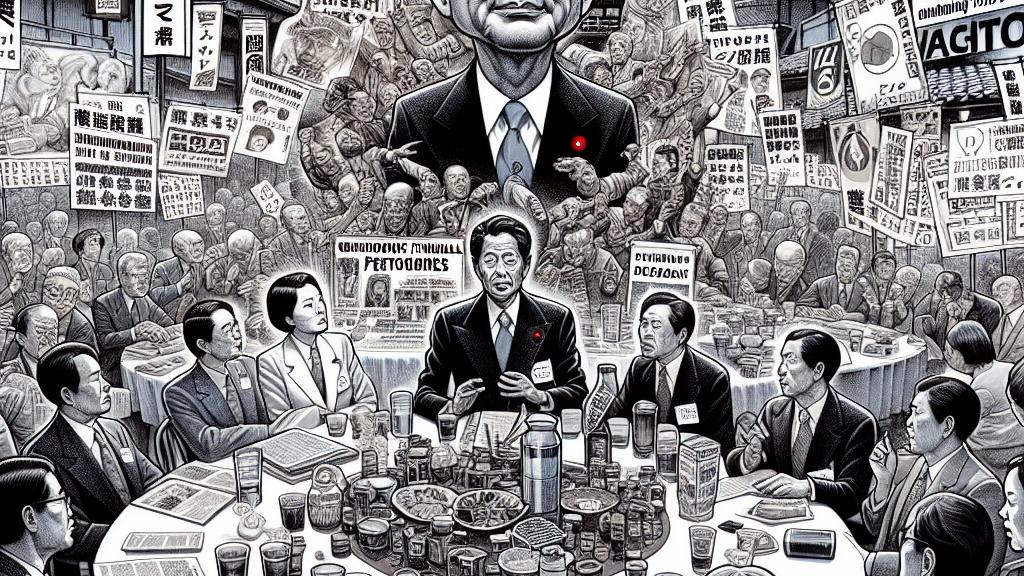Liberal Democratic Party's Policy on Controversial Candidates
Overview
- Japanese Prime Minister grapples with public scrutiny while steering through a storm of party scandals.
- LDP makes a contentious choice to endorse candidates linked to financial misconduct for the looming elections.
- An alarming 75% of voters demand rigorous investigations into 'money-backed' candidates, showcasing a desire for accountability.

The Political Landscape and its Complexities
In the vibrant yet tumultuous arena of Japan's politics, the Liberal Democratic Party (LDP) finds itself ensnared in a web of controversies that could potentially reshape its future. Prime Minister Shigeru Ishiba is now at a critical juncture, facing mounting calls for action amidst allegations of financial impropriety linked to some faction leaders. His recent decision to permit candidates with questionable financial backgrounds to vie for seats in the upcoming elections—scheduled for October 27—signals a strategic maneuver that some critics label a moral compromise. Indeed, this move seems to strike at the heart of the party’s internal dynamics; Ishiba, aware of the ticking clock, is balancing the urgent need for electoral success with the necessity to maintain public confidence. The stakes couldn’t be higher, as failing to navigate this crisis could lead to significant losses for the party.
Ethical Implications and Political Strategies
Exploring the ethical ramifications of the LDP's stance reveals stark contradictions within the party's foundations. Ishiba’s endorsement of candidates with dubious financial histories may reflect a deeper, more persistent issue: the entrenchment of 'money politics' as a norm in Japan's political culture. Cases that have recently emerged, such as accusations of kickbacks involving powerful factions, paint a troubling picture of financial irregularities tarnishing the reputation of elected officials. However, there is a strategic rationale behind Ishiba's decision. By focusing on factional stability and the immediate threat of electoral losses, he attempts to unify party members who may otherwise fracture along lines of loyalty and ethics. This dual focus presents both an opportunity and a risk—while it may reinforce local party ties, it risks alienating voters who are fed up with the status quo.
Public Sentiment: Catalyzing Change in Political Norms
Public opinion serves as a potent reminder of the crucial role citizens play in shaping political conduct. A recent survey has illuminated a striking fact: a staggering 75% of respondents advocate for diligent investigations into candidates associated with financial scandals. This statistic not only underscores a collective demand for accountability but also highlights a broader shift in societal expectations surrounding political integrity. As Ishiba navigates these turbulent waters, he must recognize that the electorate is now more discerning and less forgiving of ethical lapses. Simply put, the citizens are demanding action—not just words. If the LDP is to regain the trust of the public it has lost, it must embrace transparency and actively engage in genuine reforms, establishing robust mechanisms that deter misconduct and foster ethical governance. The road ahead is undeniably fraught with challenges, but with concerted effort, the LDP may yet convince voters that it is capable of meaningful change.

Loading...